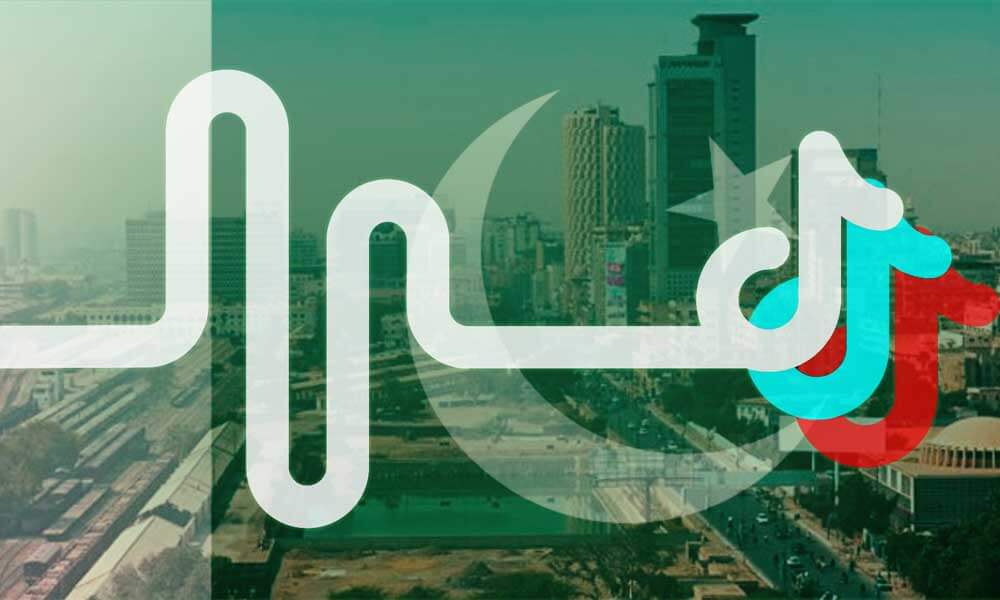Pakistan has issued a final warning to Chinese-owned social media app TikTok to clamp down on what it called “immoral, obscene and vulgar” content on the video-sharing platform, or else it will face a ban in the country.
TikTok has become a global sensation with its 15 to 60-second video clips and is hugely popular among young Pakistanis, with some users building up millions of followers.
Pakistan mulls ban on TikTok for spreading “pornography”
But the app has faced a backlash in the deeply conservative Islamic country, with critics blaming it for spreading nudity and pornography.
The Pakistan Telecommunication Authority (PTA) announced it was blocking another app, Bigo, and had received a number of complaints about TikTok over its “extremely negative effects on the society and the youth in particular”.
Read more: US ‘looking at’ banning TikTok and other Chinese apps: Pompeo
In a statement late Monday it said it had already issued notices to the company asking it to moderate content, before issuing a final warning ordering filters be put in place to stop “obscenity, vulgarity and immorality”.
Arslan Khalid, a digital media adviser to Prime Minister Imran Khan, welcomed the decision and claimed the “exploitation, objectification & sexualization of young girls on TikTok” was causing pain to parents.
TikTok removes 3.7 million accounts on complains from Pakistan
A TikTok spokesperson told AFP the platform had removed more than 3.7 million videos that violated standards in Pakistan between July 1 and December 31 last year.
“We are committed to further strengthening our safeguards to ensure the safety of our users, while increasing our dialogue with the authorities to explain our policies and demonstrate our dedication to user security”, the TikTok representative said.
Read more: TikTok to be another casualty in US-China Cold War
Nighat Dad, a lawyer who offers digital security training to women, told AFP “obscenity” complaints are vague and often aimed at women, praising the app for allowing people to express themselves in ways they often cannot in public.
The telecommunications authority also announced it was blocking the less popular Singapore-based live-streaming app Bigo Live over its content.
Pakistanis lament probable ban
Romaisa Khan, 20, is a TikTok star in Pakistan, with 2.8 million followers and videos that regular register more than 500,000 views.
PUBG ban howa, abb TikTok ban hoga. Phir YouTube, phir Twitter aur Facebook. Uske baad news channels band honge, phir entertainment channels. Aur yun ahista ahista Pakistan 92 World Cup ke azeem dur mein challa jayenge. pic.twitter.com/wHneZso2CB
— SIR .. (@SirJohnRoe) July 22, 2020
“I don’t think banning is a solution, because there are a lot of people who are earning [a living] through TikTok or getting work through TikTok, so its kind of a good thing as well,” she told Al Jazeera.
Read more: Should TikTok be banned in Pakistan?
Khan’s TikTok fame helped her break through in the country’s television industry, she said, with the exposure she got on the platform helping her first get modelling jobs with large national and multinational brands. This year, it helped her land her first role in a major television soap opera.
“The industry has a lot of nepotism, and its kind of hard to break into the industry if you don’t have anything behind you,” she said. “[TikTok] helps you to get into this, people want to work with you.”
Rights groups incensed over PTA unilateralism
In 2016, Pakistan’s parliament passed the Pakistan Electronic Crimes Act (PECA) to regulate, among other things, content on the internet, giving the PTA broad powers to block content considered to be against “the glory of Islam or the integrity, security or defence of Pakistan or … public order, decency or morality”.
Rights groups said PTA had blocked more than 800,000 websites and platforms from being accessed within the country.
Today's Pakistan:
PUBG Banned
Bigo Live Banned
TikTok Ban Pending in LHC
YouTube Ban Pending in Supreme Court— Osama Tariq (@Osama_Tariq_) July 22, 2020
The list of blocked websites includes pornographic platforms, but has also included news outlets considered critical of the country’s security and foreign policies, some social media, and certain political parties’ websites.
Farieha Aziz, co-founder of digital rights group Bolo Bhi, said the telecommunications authority has been exercising “blanket powers” on censorship.
Read more: PTA reaches to Twitter on accounts suspended over Kashmir support
“[The criteria] is just what the PTA believes or what consensus it believes exists in society,” she told Al Jazeera.
“These terms have never been defined [and] the PTA is making these decisions unilaterally and with no transparency.”
Recent research by Bolo Bhi found the telecommunications regulator had been using content reporting mechanisms with global hosting and social media companies – such as Google, Facebook and Twitter – to report political speech as being “anti-state”.
TikTok: a controversial application
TikTok, which is owned by China’s ByteDance, has faced increasing controversy over how it collects and uses data although it has repeatedly denied sharing user information with Chinese authorities.
Neighbouring India banned the app, along with dozens of other Chinese mobile platforms, over national security and privacy concerns with the United States considering a similar move.
Read more: Why banning TikTok takes away hope for rural communities
In Pakistan –- a close ally of China -– no privacy concerns have been raised.
The app was also banned by Bangladesh last year as part of a clampdown on pornography, while Indonesia briefly blocked access over blasphemy concerns.
GVS News Desk with additional input by other sources














